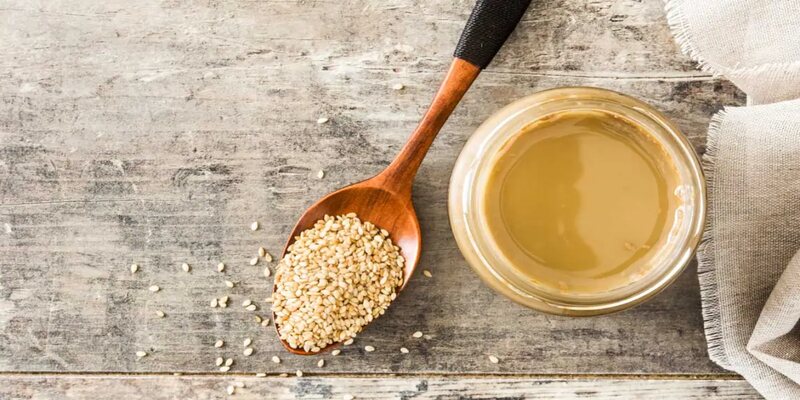Ghee, a form of clarified butter, is a staple in South Asian cuisine and Ayurvedic medicine. Although it has been typically regarded as unhealthy due to its high saturated fat content, recent research suggests that ghee could have a place in a healthy diet. This article will delve into the potential effects of ghee on cardiovascular health and weight control, shedding light on its overall nutritional profile, and exploring the intricacies of its impact on our bodies.
Understanding Ghee: A Nutritional Profile
Ghee is derived from butter through a process of simmering and removing milk solids, leaving behind a pure butter fat. This golden, aromatic substance is densely packed with nutrients. A single tablespoon of ghee contains approximately 120 calories, all from fat. These fats are primarily saturated (about 60%), with the rest consisting of monounsaturated (about 25%) and polyunsaturated fats (about 15%).
Ghee is also rich in fat-soluble vitamins A, E, and K. Vitamin A promotes eye health, vitamin E has antioxidant properties, and vitamin K is vital for blood clotting. Ghee contains small amounts of omega-3 and omega-6 fatty acids, which are essential for brain health, and butyrate, a short-chain fatty acid believed to support digestive health. Although ghee is high in fats, it's important to remember that not all fats are created equal. The mix of fats in ghee contributes to its potential health benefits and nutritional profile.
Ghee and Saturated Fats: Breaking Down the Misconceptions
For many years, saturated fats have been demonized as a leading cause of heart disease. However, recent studies have challenged this belief and suggest that the link between saturated fats and heart disease may not be so clear-cut. In fact, some research indicates that replacing saturated fats with carbohydrates may increase the risk of coronary heart disease.
One reason for this is that ghee contains medium-chain triglycerides (MCTs), which are more easily absorbed and used by the body as energy compared to long-chain fatty acids. This means that ghee may not contribute to weight gain or cardiovascular health issues in the same way as other saturated fats. Additionally, the high levels of conjugated linoleic acid (CLA) found in ghee have been linked to a decrease in body fat and improved insulin sensitivity.
Ghee and Weight Control: Finding the Balance
While it might seem counterintuitive to consider a fat-rich product such as ghee as a potential aid in weight control, several unique properties of ghee suggest it could have a positive impact on weight management when consumed in moderation.
High in Medium-Chain Triglycerides
As previously mentioned, ghee contains medium-chain triglycerides (MCTs), which are processed differently by the body compared to long-chain triglycerides found in other fat sources. MCTs are absorbed directly into the liver from the digestive tract, where they are immediately available as a rapid source of energy or turned into ketones, substances produced when the liver breaks down a lot of fat. Ketones can cross the blood-brain barrier, providing an alternative energy source for the brain and thus potentially reducing hunger and supporting weight control.
Rich in Conjugated Linoleic Acid
Ghee is also rich in conjugated linoleic acid (CLA), a naturally occurring fatty acid found in meat and dairy products. Multiple studies have shown that CLA can promote fat loss in humans. One research study published in the American Journal of Clinical Nutrition found that a daily dose of 3.2 grams of CLA resulted in a modest decrease in body fat in humans.
Contains Butyrate
Ghee contains butyrate, a short-chain fatty acid that promotes digestive health. Butyrate serves as a primary energy source for the cells lining the colon, promoting their health and integrity. It also has anti-inflammatory and detoxifying properties, and it can promote insulin sensitivity, which could help prevent weight gain and support overall metabolic health.
Enhancing Satiety
The high fat content in ghee can also enhance satiety, causing you to feel fuller longer and consume fewer calories overall. Dietary fats slow down the emptying of the stomach, leading to more prolonged feelings of fullness.
Effects of Ghee on Cardiovascular Health
Just as ghee brings potential benefits for weight control, it also interacts with our cardiovascular health in significant ways. Let's explore this further.
1.Antioxidant Properties
Ghee's high concentration of antioxidants, especially vitamin E, helps in combating free radicals, which can damage cells and potentially lead to cardiovascular disease. Antioxidants neutralize these harmful substances, thus reducing inflammation and oxidative stress, known contributors to heart disease.
2.Role of Monounsaturated Fats
Monounsaturated fats, which make up a significant portion of the fats in ghee, have been shown to improve heart health when used in place of saturated and trans fats. These fats aid in lowering low-density lipoprotein (LDL), the 'bad' cholesterol while increasing high-density lipoprotein (HDL), the 'good' cholesterol. This balance favors heart health and can reduce the risk of atherosclerosis, heart disease, and stroke.
3.Impact of Saturated Fats
While ghee does contain saturated fats, research has shifted our understanding of these fats over the years. Not all saturated fats are the same, and the medium-chain triglycerides (MCTs) in ghee appear to have a less detrimental effect on heart health, primarily because the body can easily absorb and utilize these fats.
4.Influence of Omega-3 and Omega-6 Fatty Acids
Ghee also contains omega-3 and omega-6 fatty acids, known for their heart health benefits. They improve cardiovascular health by reducing inflammation, lowering cholesterol levels, and preventing thickening of artery walls. Daily intake of these essential fatty acids can reduce the risk of heart diseases.
5.Conjugated Linoleic Acid (CLA)
CLA, a fatty acid found in ghee, is associated with heart health benefits. Some studies suggest that CLA intake could decrease the risk of heart disease, primarily by reducing inflammation and improving cholesterol levels.
6.Butyrate and Heart Health
Butyrate, a type of short-chain fatty acid found in ghee, is linked to cardiovascular health. It has anti-inflammatory properties, which can help reduce inflammation in the body, a factor associated with heart disease.
Conclusion
Ghee is a versatile and nutrient-dense food that can offer significant health benefits when consumed as part of a balanced diet. Its unique composition, rich in medium-chain triglycerides (MCTs), conjugated linoleic acid (CLA), and butyrate, presents potential advantages for weight control and cardiovascular health. Moreover, its high-fat content can enhance satiety, potentially aiding in weight management. As for cardiovascular health, the antioxidants, monounsaturated fats, omega fatty acids, and butyrate found in ghee contribute to heart health in various ways. However, like all fats, ghee should be consumed in moderation as part of a diverse and balanced diet.







